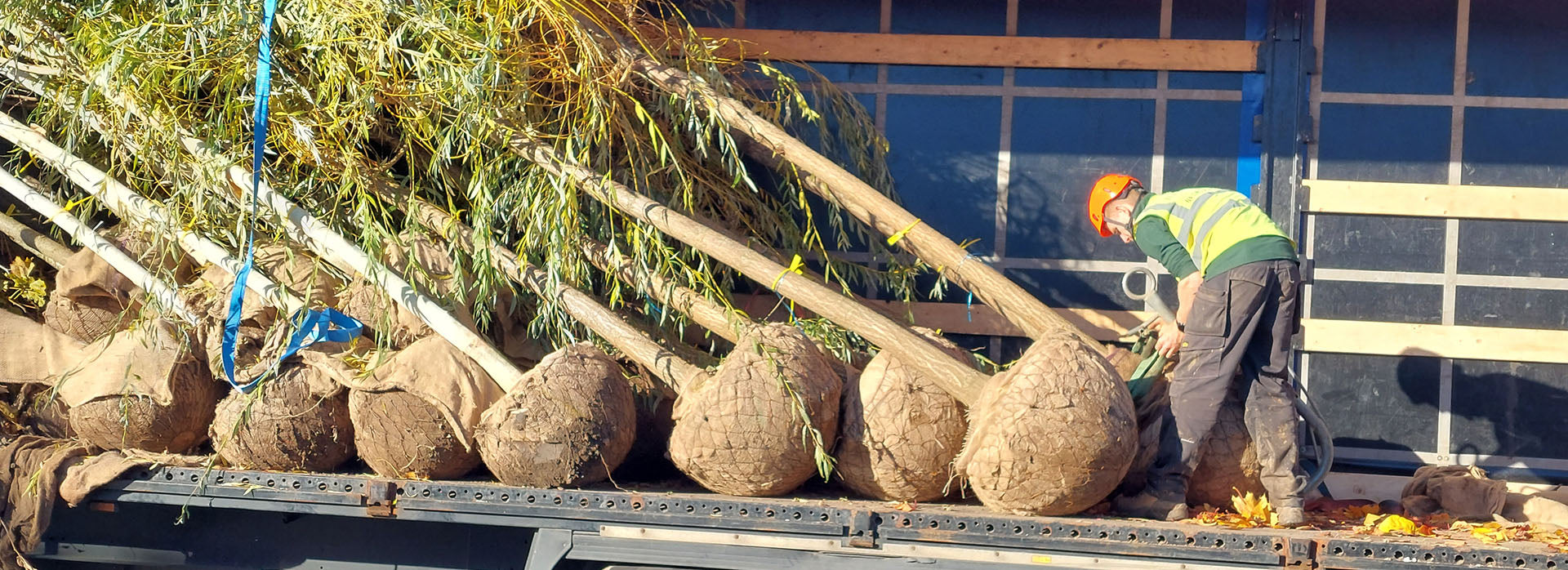
Biosecurity Statement
Biosecurity Statement
What is Biosecurity?

From the advent of air travel, and particularly following the development of the internet, we’ve seen a dramatic change in how we interact with the rest of the world. Goods, services, capital, people and ideas flow across international boundaries like never before. From a horticultural perspective, globalisation has enabled incredible access to species from nearly every corner of the globe, benefiting businesses and society alike, but it has also led to an increased movement of plants and organisms which could threaten our environment.
Most of these plants and organisms are not harmful in and of themselves, but when taken out of their natural habitats, where longstanding predator-prey dynamics have kept the ecosystem in balance, they could cause significant harm to their new surroundings. As such, it is critical to identify, mitigate and manage any potential risk, and this is where biosecurity comes in.
In short, biosecurity refers to a set of policies, processes and practical measures used to prevent the introduction and spread of harmful organisms, such as new pests (insects, bacteria, viruses, fungi) and invasive plant species. These protocols are partially legislative in nature, but beyond that it’s up to each professional to assess and implement measures which reduce and mitigate risk.
Our Commitment:
Supply Change Management
To ensure we stock only the finest trees, each specimen is hand-selected and security-tagged in the grower’s field by an experienced member of staff.

Choosing the trees in person makes it possible to observe and question the growers on their biosecurity standards and discuss which pest and disease threats they’re experiencing in their area. This provides a better understanding of their work ethics and enables us to nurture and develop supplier relationships.
Quality Production
Upon arrival, each tree is thoroughly inspected and receives a unique batch tag, providing full traceability. Should anything questionable be discovered, such trees are immediately marked, documented, quarantined and may not be moved until investigations are complete.
If a non-notifiable is concluded, then appropriate treatment plans are actioned, but should analysis reveal a notifiable pest or disease, or if investigations are inconclusive, APHA are immediately notified who will dispatch plant health inspectors to assess the situation.
During their time on the nursery, the trees undergo a comprehensive regime which is dynamically adjusted based on requirements and species preference, enabling optimal growing conditions for each tree. This includes a carefully monitored Integrated Pest Management programme, comprising of weekly crop walks, and expert consultation, as well as a comprehensive, and annually reviewed, Site and Operations Pest Risk Analysis.

Dispatch Controls
During the packing process, where root ball and crown are prepared for dispatch, each tree is thoroughly checked prior to loading by the yard team. This involves a general overview of health and vitality, rootball integrity inspection, and removal of deadwood.
To certify the tree’s health, and as part of the legislative requirement, plant passports are produced and accompany the load to its destination.
Housekeeping
We firmly believe in upholding good housekeeping in all areas of the business. This is vital for biosecurity, as well as promoting health and safety, productivity, and aesthetics. From maintaining high material standards and disinfecting tools and machinery, to waste management and general site hygiene, these efforts are fundamental to our operations.
Expertise
Plant health and biosecurity is in our nature, but to ensure we keep up to date with the latest legislation and maintain a high standard of competency, the whole team receives regular training comprising of in-house sessions, talks by industry leading experts, as well as external courses and seminars.
Refreshing and developing the team’s knowledge of existing and future pests and diseases enables us not only to continue to produce the highest quality plants, but it also gives us a strategic advantage in an ever-changing environment.
Plant Healthy Certified
As proof of our commitment, Majestic Trees is proudly Plant Healthy certified, an industry-led scheme, backed by the HTA and DEFRA, which enables businesses and organisations to be independently and regularly audited as a means of formally demonstrating that they comply with the Plant Health Management Standard.
Whilst a voluntary initiative, its high standards have become a recognised industry-wide benchmark, enabling customers and stakeholders to easily identify businesses and organisations which promote exemplary plant health and biosecurity.
Our full Plant Health Policy can be found here.

